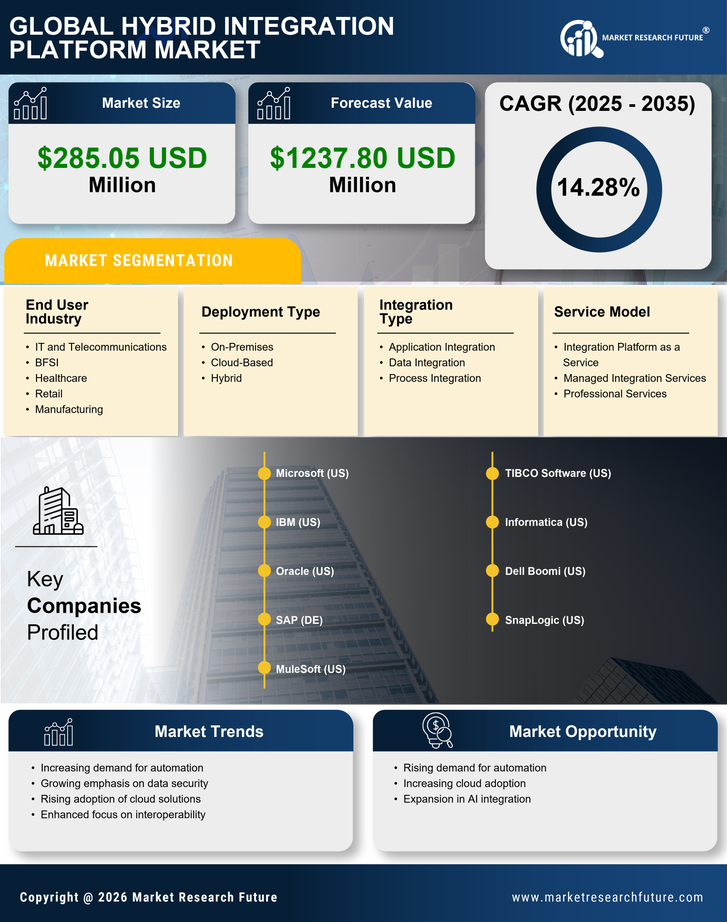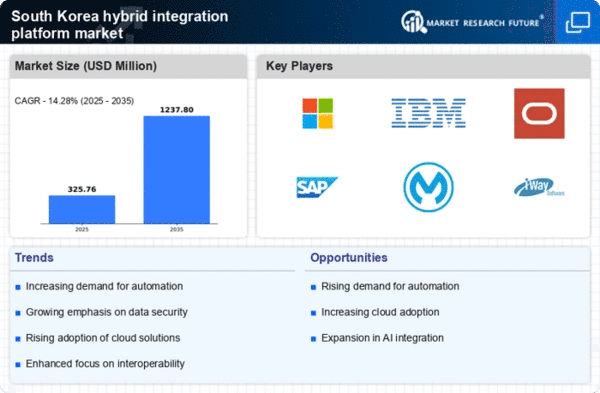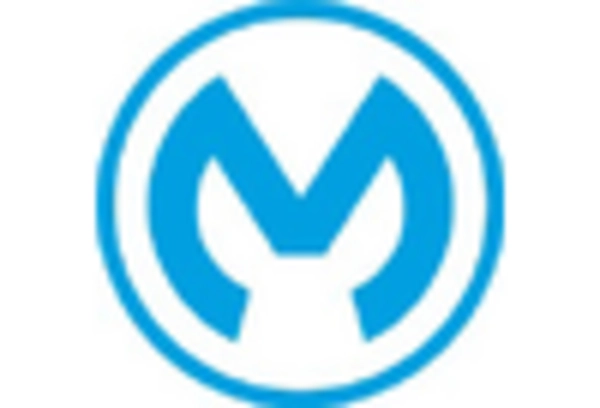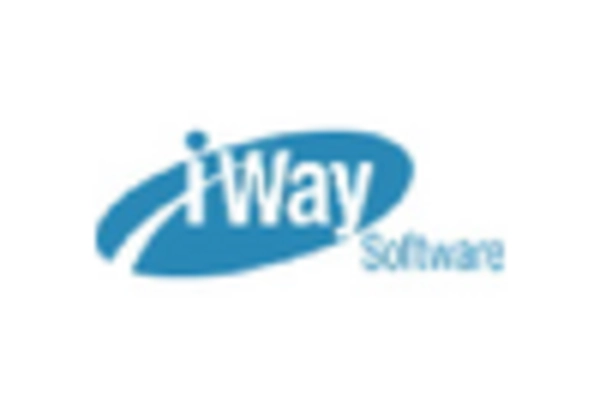Rising Need for Operational Efficiency
The hybrid integration-platform market in South Korea is experiencing a notable surge in demand driven by organizations seeking operational efficiency. Companies are increasingly recognizing the necessity of integrating disparate systems to streamline processes and reduce operational costs. According to recent data, businesses that adopt hybrid integration solutions can achieve up to 30% improvement in operational efficiency. This trend is particularly pronounced in sectors such as finance and manufacturing, where the need for real-time data access and process automation is critical. As organizations strive to enhance productivity and reduce time-to-market, The hybrid integration platform market is likely to see sustained growth. This growth is due to the facilitation of seamless communication between on-premises and cloud-based applications.
Regulatory Compliance and Data Governance
The hybrid integration-platform market in South Korea is also being driven by the growing importance of regulatory compliance and data governance. Organizations are under increasing pressure to adhere to stringent regulations regarding data privacy and security. As a result, many are turning to hybrid integration solutions to ensure that their data management practices align with legal requirements. Recent surveys indicate that approximately 40% of companies in South Korea cite compliance as a key driver for adopting integration platforms. This trend is particularly relevant in sectors such as finance and healthcare, where data governance is critical. Consequently, the hybrid integration-platform market is likely to see continued growth as businesses seek to mitigate compliance risks through effective integration strategies.
Expansion of Digital Transformation Initiatives
The hybrid integration platform market is witnessing growth in South Korea. This growth is largely due to the expansion of digital transformation initiatives across various sectors. Organizations are increasingly adopting hybrid integration solutions to facilitate their digital journeys, which often involve the integration of legacy systems with modern cloud applications. Recent statistics indicate that over 60% of South Korean enterprises are in the process of digital transformation, creating a robust demand for hybrid integration platforms. This trend is particularly evident in industries such as telecommunications and education, where the need for agile and scalable solutions is paramount. As digital transformation continues to evolve, the hybrid integration-platform market is likely to benefit from the increasing need for seamless integration.
Growing Emphasis on Data-Driven Decision Making
In South Korea, the hybrid integration-platform market is significantly influenced by the increasing emphasis on data-driven decision making. Organizations are leveraging integrated platforms to consolidate data from various sources, enabling them to derive actionable insights. This trend is underscored by the fact that companies utilizing integrated data solutions report a 25% increase in decision-making speed. The ability to analyze data in real-time is becoming a competitive advantage, particularly in industries such as retail and healthcare. As businesses continue to prioritize data analytics, the hybrid integration-platform market is poised for growth, as these platforms provide the necessary infrastructure to support comprehensive data integration and analysis.
Increased Collaboration Across Business Ecosystems
The hybrid integration-platform market is benefiting from the increased collaboration across business ecosystems in South Korea. As companies seek to enhance partnerships and improve supply chain efficiency, the need for integrated platforms that facilitate collaboration becomes evident. Recent findings suggest that organizations that implement hybrid integration solutions can enhance collaboration by up to 35%, leading to improved innovation and faster time-to-market. This trend is particularly significant in industries such as logistics and manufacturing, where collaboration with suppliers and partners is essential. As businesses continue to prioritize collaborative efforts, the hybrid integration-platform market is expected to grow, driven by the demand for solutions that enable seamless interaction between various stakeholders.

















